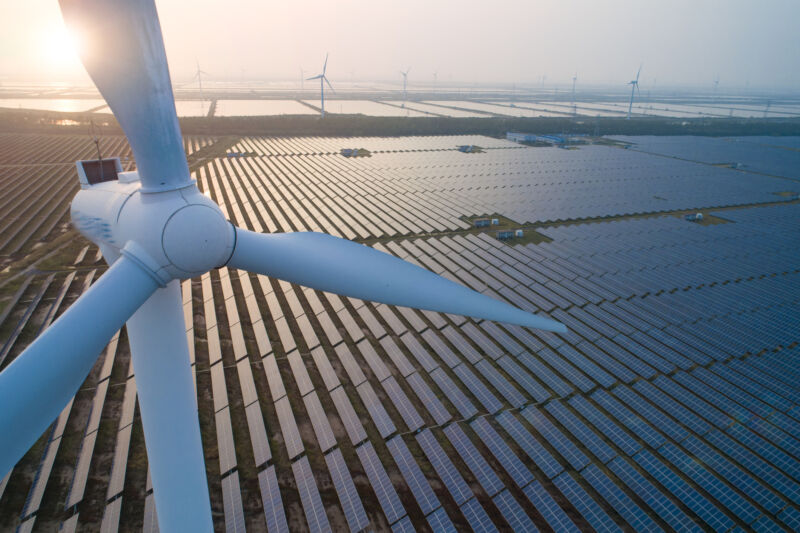Enlarge (credit: Yaorusheng)
Humanity is on the cusp of radical changes in how we produce and consume energy, according to a new evaluation by the International Energy Agency. And that leaves us in a place where small changes can produce huge differences in the energy economy by the end of the decade—even a slight drop in China’s economic growth, for example, could cut coal use by an amount similar to what Europe currently consumes.
Amidst the flux, governments are struggling to set policies that either meet our needs or reflect the changing reality. By 2030, the IEA expects that we’ll have the capacity to manufacture more than double the solar panels needed to meet current policy goals. And those goals will leave us falling well short of keeping warming below 2° C.
In flux
The IEA’s analysis focuses on two different scenarios. One of them, which it terms STEPS, limits the analysis to the policies that governments have already committed to. Those are sufficient to have energy-driven emissions peak in the middle of this decade—meaning within the next few years. But they stay above net zero for long enough to commit us to 2.4° C warming, a level that climate scientists indicate will lead to severe consequences.
Read 13 remaining paragraphs | Comments

